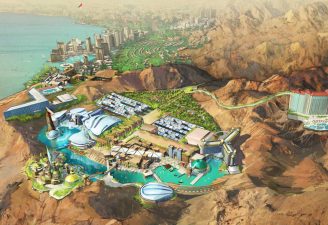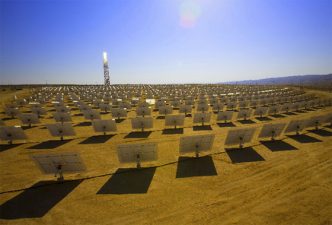 The Gulf countries badly need to cut fuel subsidies in order to drive renewable generation projects, but in the current political climate, that would be suicidal.
The Gulf countries badly need to cut fuel subsidies in order to drive renewable generation projects, but in the current political climate, that would be suicidal.
The nuclear travesty in Japan has gripped news headlines, while the Middle East political drama has taken back stage. But it is still having huge ramifications in the region. Among the world’s worst polluters, and the biggest suppliers of emissions-causing fuel, the Gulf countries do have great intentions to boost their renewable energy supply. And not for purely altruistic reasons. By eating into their own oil supply, the United Arab Emirates, Kuwait, and Saudi Arabia among others limit the amount of oil that can be used for export. Increasing their renewable energy portfolio, however, depends richly on doing away with oil subsidies. And that, Reuters reports, is seemingly impossible amidst the current unrest.
The recent unrest throughout the Middle East is partly fueled by discontent at the high cost of living: food and electricity prices have skyrocketed (while the rich, like Mubarak and other elite, pad their own pockets) and ordinary people struggle to make a decent living.
Before the crisis in Egypt escalated, people had gathered several times during the heat of summer to protest blackouts. During Ramadan, many residents were unable to purchase decent food, or rely on the energy required to cook it.
In this environment, it would be political suicide for governments in Oman, Saudi, or Kuwait, where average price breaks of 83% are given to local fuel production, to propose cutting said subsidies. Unfortunately, this is a major impediment to adopting renewable energy projects.
Despite Saudi Arabia’s intention to produce 10% of its annual energy output from renewable sources by 2020, and the UAE’s commitment to 7% in the same time frame, the Middle East received only 1% of last year’s worldwide $250 billion in renewable energy investments, according to Eric Usher from the United Nations Environment Program.
And many of the projects that were originally planned are being shelved. Perhaps the most visible sustainability initiative in the Middle East, Masdar City was expected to develop a $2.2 billion clean hydrogen project with energy giant BP. But that project was “mothballed,” according to the news agency.
Gulf countries are faced with a vicious circle, which will require a series of steps to fix. Perhaps the best place to start would be with more reasonable construction projects (in Saudi especially, which uses $300 million of its own oil every day) and more circumspect spending on high.
:: Reuters
More on carbon emissions and energy in the Middle East:
Solar Energy’s Not So Sunny Side
MENA’s Top Five Countries For Solar Energy Generation
What Holds Israeli Renewable Energy Back?
Image via jemasmith




Comments are closed.